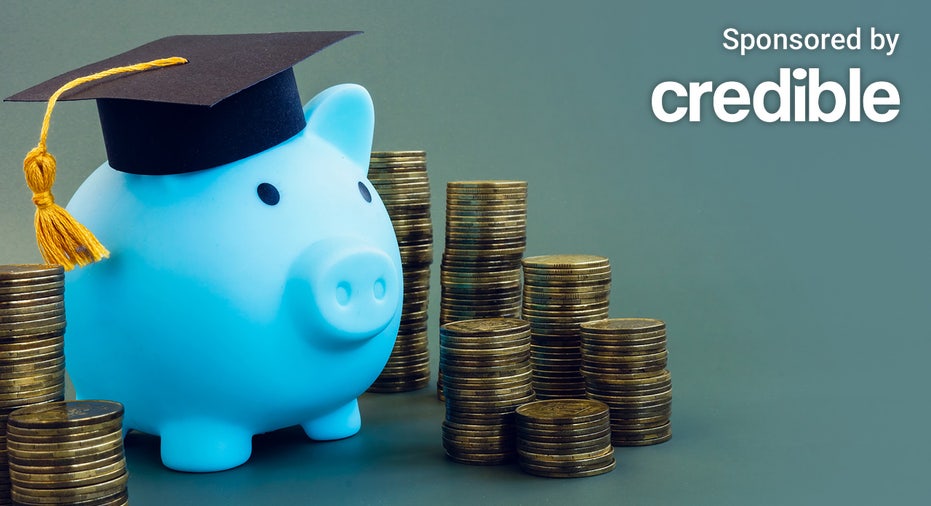Student loan debt hits new record high, but here's how you can navigate repayment
New York Fed report shows student loan balances rise $14 billion in Q1

The latest household debt survey from the New York Fed showed student loan debt has reached yet another new record high. (iStock)
National student loan debt surged in the first quarter of 2022 to reach $1.59 trillion, according to the latest household debt report from the Federal Reserve Bank of New York.
The $14 billion increase from the fourth quarter of 2021 represents a new record high and accounts for about 10% of total household debt, the NY Fed said. It's the second-highest category in consumer debt, behind mortgages.
About 5% of total student loan debt was 90 days more delinquent or in default in the first quarter. About 1.05% of student loan debt entered into delinquency in the first quarter, the report stated, up from 1.02% when compared to the first quarter of 2021.
If you have a private student loan, it would not qualify for student loan forbearance programs, but a refinance could help you lower your monthly payments. Visit Credible to find your personalized interest rate without affecting your credit score.
BIDEN SAYS HE’S CONSIDERING CANCELING SOME STUDENT DEBT, BUT NOT $50K
Biden considers canceling $10,000 in student loan debt
The news of higher debt balances comes as President Joe Biden says he's considering canceling some student loan debt, but not the $50,000 reduction that some Democrats had hoped for.
"I am in the process of taking a hard look at whether or not there will be additional debt forgiveness and I will have an answer on that in the next couple of weeks," Biden told reporters at the White House on April 28.
Federal student loan payments for are currently paused until August 31, 2022, the fourth time the Biden administration has postponed federal student loan repayment. When he announced the pause on April 6, the president said that resuming payments in May would have resulted in millions of borrowers facing "significant economic hardship" and that "delinquencies and defaults could threaten Americans’ financial stability."
Former White House Press Secretary Jen Psaki added during an April 25 press briefing that Biden would "make a decision about any cancellation of student debt before the conclusion of that pause on student loans."
Private loans do not qualify for the COVID-19 forbearance program or for student loan cancellation. If you want to lower your monthly payments, consider refinancing your loans to reduce your interest rate. Visit Credible to compare multiple lenders at once and choose the one with the best interest rate for you.
BIDEN MORE OPEN TO CANCELING STUDENT DEBT 'THAN EVER BEFORE,' SCHUMER SAYS
How you can pay down your student debt
There are multiple ways to pay down your student debt or reduce your monthly payments to better-manage your student loans. Here are a few ways to navigate repayment:
1. Take out a cash-out mortgage refinance
Home prices have surged significantly over the past year, and many homeowners are now seeing unprecedented levels of equity in their homes. As a result, some homeowners are taking out cash-out refinances to pay off their student loan debt. Doing so could significantly lower your interest rate, help you pay down debt faster and consolidate your payments.
In fact, some mortgage lenders have specific programs designed to help borrowers pay down their student loans. If you are interested in comparing your options, visit Credible to get prequalified for a mortgage refinance in minutes.
2. Refinance your student loans
If you have a federal student loan, refinancing could disqualify you from student loan forgiveness or federal forbearance programs. However, borrowers of student loans from private financial institutions could lower their monthly payments by refinancing and lowering their interest rates. If you are interested in seeing your refinance options, contact Credible to speak to a student loan expert and get all of your questions answered.
Have a finance-related question, but don't know who to ask? Email The Credible Money Expert at moneyexpert@credible.com and your question might be answered by Credible in our Money Expert column.




















